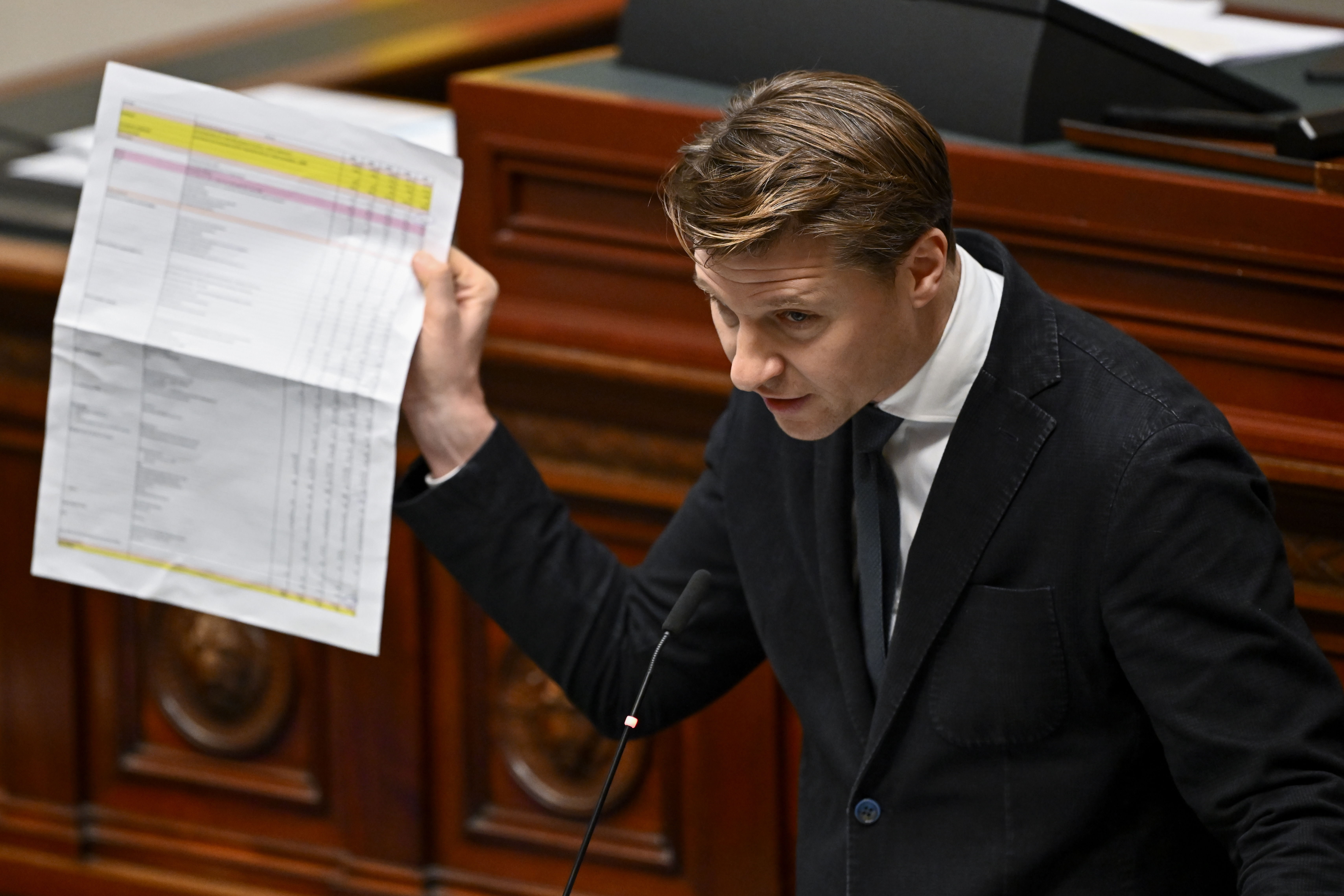Federal government: Intense debate on coalition agreement in parliament

Following prime minister Bart De Wever's government statement on Tuesday, the debate on the coalition agreement is taking place in parliament on Wednesday. That debate was intense from the outset, with opposition members sharply criticising the budget and claiming that poverty is going to increase. The debate will probably continue until the early hours.
Stefaan Van Hecke of Groen, the Flemish Greens, lamented that the welfare budget was heavily cut. “The previous government ensured that poverty fell by 25 per cent, now poverty is going to rise, rise, rise,” he said.
Alexia Bertrand of Open VLD, the Flemish liberals, denounced the government's budgetary ambitions. It wants to bring the budget of Entity 1 - the federal level and social security - below the deficit of 3 per cent of GDP by 2030. But Bertrand said that is not enough to be in line with the European demands.
Van Hecke of Groen, Wouter Vermeersch of Flemish far-right party Vlaams Belang and Paul Magnette of the Francophone socialist party PS wondered about the feasibility of the many payback effects included in the budget tables. The budget tables mention nearly 8 billion euros in payback effects at the end of the legislature. Vermeersch also lamented that the tax increases take effect immediately, but the cuts are only for later. According to Magnette, 3 billion euros was made up.
“Of course we achieve payback effects with what is before us,” responded budget minister Vincent Van Peteghem. He referred to the measures in the coalition agreement to get more people to work.
Far-left party PVDA focused on the pension measures and capital gains tax. “You are not rewarding work at all,” said Kim De Witte of PVDA. Social affairs minister Frank Vandenbroucke and finance and pensions minister Jan Jambon however responded strongly.
Vandenbroucke also emphasised that the government will invest in health care and health personnel. The real growth norm of health spending on top of the index will be 2.5 per cent in 2025. The two years thereafter, it will be 2 per cent, before rising again to 2.6 and 3 per cent in 2028 and 2029. “Not every spending increase is a good increase,” Vandenbrocuke stressed. “We see that today as well. So hard work will have to be done to keep spending on track.”
Axel Ronse of N-VA © BELGA PHOTO DIRK WAEM
Related news